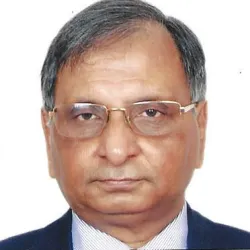SupTech: Disruptive Technologies in Reporting, Regulation and Supervision - main page
SupTech - main page
SupTech: Disruptive Technologies in Reporting, Regulation and Supervision
March 8 - 11
In 2021, disruptive technological innovation continues to transform financial systems whilst Covid-19 brings new threats to the regulatory and supervisory regimes that protect financial systems. Cryptocurrencies are forcing regulators and supervisors to take sides, cyber threats bring new dimensions to systemic risk, and digitalisation is generating revolutionary platforms for financial crime and fraud.
Proactive application of advanced technologies like machine learning or DLT also opens up unprecedented regulatory and supervisory possibilities. RegTech and SupTech offer new tools and frameworks to accelerate risk-based reporting, monitor systemic risk as well as supervise financial institutions based on Big Data. Increasingly, central bankers recognise that in order to make the most of these emerging opportunities, significant change is needed: at methodological, technical and institutional levels.
This seminar, ‘SupTech: Disruptive Technologies in Reporting, Regulation and Supervision’ is designed to equip delegates with the tools to meet these current challenges facing central bankers, regulators and supervisors with an active interest in regulatory and supervisory technology.
US timezone: 8am-11am (ET) |1pm-4pm (GMT) | 9pm-12am (SGT)
SupTech: Disruptive Technologies in Reporting, Regulation and Supervision agenda 2021
Foundations for risk management in Regtech and Suptech
13:00 – 13:15
Course introduction
Course introduction session led by the chair
13:00 - 13:15
- Introductions and welcome from the chairperson
- Overview of the training course
- Discussion of the delegate expectations
Klaus Löber is the Chair of the CCP Supervisory Committee (CCP SC) in ESMA, which was established in 2020. His areas of responsibility encompass the tasks attributed by the European Market Infrastructure Regulation (EMIR) to the CCP SC, in particular the enhanced supervisory convergence towards EU CCPs and ensuring a resilient CCP landscape in the EU as well the monitoring and supervision of CCPs established in third countries in view of the risks that they may pose to the EU financial system. He is also chairing the ESMA CCP Policy Committee contributing to the EU Single Rule Book in the area of CCPs.
Prior to this role, Mr Löber was the Head of the Oversight Division of the European Central Bank in charge of the oversight of financial market infrastructures, payments instruments and schemes. Earlier positions include the Head of the Secretariat of the Committee on Payments and Market Infrastructures, the global standard setting body in the area of payments, clearing and settlement as well as positions in the European Commission, Deutsche Bundesbank and private practice.
Mr Löber regularly publishes on financial markets legal, regulatory and infrastructure issues and lectures at universities.
13:15 – 13:45
Overview of the foundations of RegTech and SupTech
13:15 - 13:45
- Evolutionary journey of financial, regulatory, and supervisory technology
- How has RegTech and SupTech impacted the financial services industry?
- Identifying key technologies in the areas of DLT, Big Data analytics, machine learning and cloud computing
- Examples of applications in regulatory reporting and compliance risk management
Douglas W. Arner is the Kerry Holdings Professor in Law, RGC Senior Fellow in Digital Finance and Sustainable Development and Associate Director of the HKU-Standard Chartered Foundation FinTech Academy at the University of Hong Kong. In addition, he is Associate Dean (Taught Postgraduate and Development) of the Faculty of Law at HKU and co-founder and former Director of HKU’s Asian Institute of International Financial Law, as well as Faculty Director and co-founder of the LLM in Compliance and Regulation, the LLM in Corporate and Financial Law, the Law, Innovation, Technology and Entrepreneurship (LITE), and the East Asian International Economic Law and Policy Programmes. Douglas served as Head of the HKU Department of Law from 2011-2014, as Director of the Duke University-HKU Asia America Institute in Transnational Law from 2005-2016, and as an inaugural member of the Hong Kong Financial Services Development Council from 2013-2019. In 2020 he was awarded an inaugural Hong Kong Research Grants Council Senior Fellowship to study the role of digital finance in financial inclusion and the UN Sustainable Development Goals. Douglas is a Visiting Professor and Senior Visiting Fellow of Melbourne Law School of the University of Melbourne, a Visiting Professorial Fellow of the Faculty of Law of UNSW Sydney, a non-executive director of NASDAQ and Euronext listed biotechnology firm Aptorum Group, an Advisory Board Member of the Global Impact FinTech (GIFT) Forum, Policy 4.0 and of the Centre for Finance, Technology and Entrepreneurship (CFTE), and co-founder and an executive board member of the Asia Pacific Structured Finance Association. Douglas has published eighteen books and more than 200 articles, chapters and reports on international financial law and regulation, including most recently Reconceptualising Global Finance and its Regulation (Cambridge 2016) (with Ross Buckley and Emilios Avgouleas) and The RegTech Book (Wiley 2019 (Janos Barberis and Ross Buckley). His recent papers are available on SSRN at https://papers.ssrn.com/sol3/cf_dev/AbsByAuth.cfm?per_id=524849 , where he is among the top 50 authors in the world and among the top 15 authors in the area of law by total downloads. Douglas led the development of Introduction to FinTech – launched with edX in May 2018 and now with over 100,000 learners spanning almost every country in the world – and the foundation of the edx-HKU Online Professional Certificate in FinTech. In addition, he has served as a consultant with, among others, the World Bank, Asian Development Bank, UN, APEC, Alliance for Financial Inclusion, and European Bank for Reconstruction and Development. He has lectured, co-organised conferences and seminars and been involved with financial sector reform projects around the world. Douglas has been a visiting professor or fellow at Duke, Harvard, the Hong Kong Institute for Monetary Research, IDC Herzliya, McGill, Melbourne, National University of Singapore, University of New South Wales, Shanghai University of Finance and Economics, and Zurich, among others.Douglas W. Arner is the Kerry Holdings Professor in Law, RGC Senior Fellow in Digital Finance and Sustainable Development and Associate Director of the HKU-Standard Chartered Foundation FinTech Academy at the University of Hong Kong. In addition, he is Associate Dean (Taught Postgraduate and Development) of the Faculty of Law at HKU and co-founder and former Director of HKU’s Asian Institute of International Financial Law, as well as Faculty Director and co-founder of the LLM in Compliance and Regulation, the LLM in Corporate and Financial Law, the Law, Innovation, Technology and Entrepreneurship (LITE), and the East Asian International Economic Law and Policy Programmes. Douglas served as Head of the HKU Department of Law from 2011-2014, as Director of the Duke University-HKU Asia America Institute in Transnational Law from 2005-2016, and as an inaugural member of the Hong Kong Financial Services Development Council from 2013-2019. In 2020 he was awarded an inaugural Hong Kong Research Grants Council Senior Fellowship to study the role of digital finance in financial inclusion and the UN Sustainable Development Goals. Douglas is a Visiting Professor and Senior Visiting Fellow of Melbourne Law School of the University of Melbourne, a Visiting Professorial Fellow of the Faculty of Law of UNSW Sydney, a non-executive director of NASDAQ and Euronext listed biotechnology firm Aptorum Group, an Advisory Board Member of the Global Impact FinTech (GIFT) Forum, Policy 4.0 and of the Centre for Finance, Technology and Entrepreneurship (CFTE), and co-founder and an executive board member of the Asia Pacific Structured Finance Association. Douglas has published eighteen books and more than 200 articles, chapters and reports on international financial law and regulation, including most recently Reconceptualising Global Finance and its Regulation (Cambridge 2016) (with Ross Buckley and Emilios Avgouleas) and The RegTech Book (Wiley 2019 (Janos Barberis and Ross Buckley). His recent papers are available on SSRN at https://papers.ssrn.com/sol3/cf_dev/AbsByAuth.cfm?per_id=524849 , where he is among the top 50 authors in the world and among the top 15 authors in the area of law by total downloads. Douglas led the development of Introduction to FinTech – launched with edX in May 2018 and now with over 100,000 learners spanning almost every country in the world – and the foundation of the edx-HKU Online Professional Certificate in FinTech. In addition, he has served as a consultant with, among others, the World Bank, Asian Development Bank, UN, APEC, Alliance for Financial Inclusion, and European Bank for Reconstruction and Development. He has lectured, co-organised conferences and seminars and been involved with financial sector reform projects around the world. Douglas has been a visiting professor or fellow at Duke, Harvard, the Hong Kong Institute for Monetary Research, IDC Herzliya, McGill, Melbourne, National University of Singapore, University of New South Wales, Shanghai University of Finance and Economics, and Zurich, among others.
13:45 – 14:00
Break
06:45 - 07:00
14:00 – 14:45
Application of SupTech in systematically important financial institutions
14:00 - 14:45
- Overview of the D-SIB (domestically systemically important) and G-SIB (global systemically important) frameworks
- Practical examples of the application of RegTech and SupTech for D-SIB and G-SIB identification and continuous oversight
- What are the implications of cooperation between the regulator and the regulated?
- Mitigating the challenges of cross-jurisdiction communication and coordination for effective supervision
Manoj Kumar Singh is a central banker with more than 14 years of experience, working currently in the area of supervision and supervisory policy development with Reserve Bank of India. His areas of expertise include risk-based supervision, fintech, regtech/suptech, with proper balance on both the challenges and opportunities.
14:45 – 15:00
Break
07:45 - 08:00
15:00 – 15:45
Outsourcing technology and managing potential risk
15:00 - 15:45
- Identifying areas of outsourcing and related risks and concerns
- Specific Covid-19 observations
- How can exposure to these risks leave central banks vulnerable when acting as overseers/supervisors?
- Requirements to resiliency and business continuity plans to prepare and manage these risks
Patrick Papsdorf is Head of Section of Payments Oversight in the Directorate General Payments and Market Infrastructure (DG-MIP) at the European Central Bank (ECB). His area of responsibility comprises the oversight of payment systems and schemes, and encompasses the assessment of emerging risks and developments in the payments ecosystem, including aspects cyber resilience and financial innovation. Prior to this, Mr Papsdorf was Adviser to DG-MIP's Market Infrastructure Management Division, where he was in charge of analytical and compliance matters, and contributed to the operations and development of key market infrastructures.
Earlier positions include a commercial bank, the Deutsche Bundesbank and the Federal Reserve Bank of New York. Mr Papsdorf holds the German recognition as bank officer, a bachelor's degree in business management from the University of the Deutsche Bundesbank and a master in global management.
Tools and frameworks
13:00 – 13:45
Understanding the world of digital money
13:00 - 13:45
- Overview of the landscape of digital money
- What is the central banks role within the digital money landscape?
- Evaluation of wholesale and retail digital currencies, and their suitability for central banks to issue
- Digital currency vs cash: can they work together, or will digital currency replace cash?
John Winchcombe is a Currency and Payment Consultant having spent his career working with central banks on banknotes and management of the cash cycle. He worked for De La Rue and was the Currency Division Product Development and Marketing Director until mid-2015. He still works on providing banknote circulation and performance data based on the automated reading and analysis of banknote serial numbers and is Editor of Cash and Payment News. In this editorial role he writes monthly about payments and, in particular, about the impact of digital currencies. Crypto currencies, stablecoins and CBDCs have been steadily growing in importance and there is a need to bring clarity about them. John speaks regularly on webinars and at conferences. He is also an adviser to the Central Bank Digital Currency conference.
13:45 – 14:00
Break
06:45 - 07:00
14:00 – 14:45
Using Big Data for nowcasting macro-economic indicators
14:00 - 14:45
- Outlining emerging trends in regulatory Big Data
- Challenges of Big Data applications and potential use opportunities for financial stability and systemic risk analysis
- Good practice for combining and using Big Data from various sources
- Case study: use of Big data in autoregressive now-casting models
|
Per Nymand-Andersen has over 25 years of Central Banking Experiences and was part of creating and developing the European Central Bank from scratch. Per has developed his expertise in banking and financial markets, fintech, data science, communications, securities settlement systems, statistics and Management. Per holds several Fintech/data science Advisor Board positions in private and simi-public organisations. Per is a Lecture at Goethe-Universität Frankfurt and is a frequent speaker at international events and author of several publications/articles regarding financial markets, data science, communication and statistics. His recent renown book “Data science in Economics and Finance for Decision Makers” was published by Riskbooks.com. Prior to joining the ECB, he provided market research consultancy services for the European Commission, Luxembourg. Per has an MBA in Economics and Management Science from Copenhagen Business School, Denmark and has a Fintech certificate from Harvard University. Per speaks four languages (English, German, French and Danish). Further details: https://www.linkedin.com/in/per-nymand-andersen-81609913 |
14:45 – 15:00
Break
07:45 - 08:00
15:00 – 15:45
Utilizing software platforms and APIs in risk-based reporting
15:00 - 15:45
- What key features are necessary for an effective risk-based supervision frameworks and strategies?
- The impact of APIs (Application Programming Interface) and software platforms on regulatory value chain
- The digital transformation of financial supervision
- Data management maturity and data strategy
Project manager of Risk-based Supervision Model Implementation into the Supervisory Activities project;
Under my leadership, an e-Licensing tool was developed, which allows FIs to submit applications electronically and allows automated application evaluation by including the necessary expertise and information on issued licenses to be submitted to the LIS system of the Center of Registers and the Lietuvos bankas website.
Under my leadership, the Supervision Service information system ProTas was developed and implemented. IT tools supporting business processes were implemented: the Register of Sanctions, the Register of Inspections, the Register of Consumer Disputes and Complaints and tools to support settlement process, dispute submission via electronic channels.
Head of Risk Modelling Division, 2012–2015
Quantitative models of selection and risk assessment were implemented.
INSURANCE SUPERVISORY COMMISSION OF THE REPUBLIC OF LITHUANIA
Deputy Chair, 2008–2012
At the same time – European Insurance and Occupational Pensions Authority (EIOPA) (Member of Board of Supervisors; Financial Stability Committee; Information Technology and Data Committee); European Systemic Risk Board (ESRB) (General Board; Special Advisory Committee); Nordic-Baltic Stability Group (NBSG).
Head of Information Analysis, 2006–2008
Actuary, 2004–2006
Regulation, ethics, and evolving challenges in Fintech
13:00 – 13:45
Regulating online lending: China’s P2P case study
13:00 - 13:45
- Overview of tight vs light regulation of P2P platforms
- Issues related to separation of information intermediation from financial intermediation in P2P
- Classification of P2P like a bank or an investment fund
- Implications for credit risk analysis
Herbert Poenisch
Former senior economist, BIS, and senior fellow, Academy for Internet Finance, Zhejiang University
Former Bank for International Settlements
Basic info: Austrian citizen, resident in Penang, Malaysia and Houlgate, France
Education: University of Linz, Austria (PhD) and Oxford University, UK (MLitt)
Present position: retired from Bank for International Settlements, Senior Fellow, Academy for Internet Finance, Hangzhou and member of International Committee at International Monetary Institute, Beijing (2016- present)
Former Positions: Advisor to SEACEN and BNM (2010-2016)
Senior Economist, Monetary and Economic Department, BIS (1990 -2010). Seconded to IMF
Economist at Austrian National Bank (1977-1990). Seconded to IMF, OECD, ADB, BIS
Publications: see LinkedIn herbert.poenisch
13:45 – 14:00
Break
06:45 - 07:00
14:00 – 14:45
BigTech in FinTech: the new focus of regulatory attention
14:00 - 14:45
- Defining the features of the BigTech sector and entities
- How has BigTech impacted financial services and technology providers?
- Outline of local and cross-jurisdictional efforts focused on regulation and supervision of BigTech
- Discussion: who are the BigTechs in the delegates’ home jurisdictions?
Anand Sinha joined the Reserve Bank of India (RBI) in July 1976 and became deputy governor in January 2011. He was adviser in RBI up to April 2014 after demitting the office of deputy governor in RBI on January 18, 2014. As deputy governor, he was in charge of regulation of commercial banks, non-banking financial companies, urban cooperative banks and information technology, among others. He has represented the RBI in various Committees/Groups of the Bank for International Settlements (BIS), was on the G20 Working Group on Enhancing Sound Regulation & Strengthening Transparency and also a board member of the Securities and Exchange Board of India. He holds master’s degree in physics from the Indian Institute of Technology, New Delhi.
14:45 – 15:00
Break
07:45 - 08:00
15:00 – 15:45
The focus on regulating FinTech
15:00 - 15:45
- Overview of policies and approaches to regulation and supervision of FinTech
- Balancing the support for innovation with consumer protection: examples of strategies, frameworks and indicators used
- Implications for resourcing and institutional organisation of central banks and regulators
- Discussion: successes and challenges from the delegates’ home jurisdictions
Effective application for Regtech and Suptech
13:00 – 13:45
Successfully visualising systemic risk
13:00 - 13:45
- Combining available technologies and digital platforms for visualising different types of systemic risk
- Effective analysis of complex financial data and how to filter signal from noise
- Managing the different operational and ethical risks which arise and the subsequent challenges they present
- Hands-on exercise: mapping of cross-holdings between financial institutions and identification of early warning indicators
Kimmo Soramäki is the founder and CEO of Financial Network Analytics (FNA) and the founding editor-in-chief of The Journal of Network Theory in Finance. He started his career as an economist at the Bank of Finland where he developed in 1997 the first simulation model for interbank payment systems. In 2004 while at the research department of the Federal Reserve Bank of New York, Mr Soramäki was among the first to apply methods from network theory to improve our understanding of financial systems. During the financial crisis of 2007-2008 he advised several central banks, including the Bank of England and European Central Bank, in modelling interconnections and systemic risk. This work led him to found FNA in 2013 provide solutions to monitor the complex financial networks that play a continually larger role in the world around us. Mr Soramäki holds a Doctor of Science in Operations Research and a Master of Science in Economics (Finance), both from Aalto University in Helsinki.
13:45 – 14:00
Break
06:45 - 07:00
14:00 – 14:45
RegTech and SupTech for AML and anti-fraud
14:00 - 14:45
- Key financial crime risks of the digital era
- Exploring examples of blockchain and machine learning applications in KYC and KYCC
- The role of international and public-private cooperation and coordination
- Comparison of automated vs. manual Fraud and AML investigations
14:45 – 15:00
Break
07:45 - 08:00
15:00 – 15:30
Closing remarks and delegate action plans
Concluding session led by the chair
15:00 - 15:30
- Summary of the course
- Discussion of the observed trends and case studies
- Application of learning points in the delegates’ home organisations
- Preparation of action points
Klaus Löber is the Chair of the CCP Supervisory Committee (CCP SC) in ESMA, which was established in 2020. His areas of responsibility encompass the tasks attributed by the European Market Infrastructure Regulation (EMIR) to the CCP SC, in particular the enhanced supervisory convergence towards EU CCPs and ensuring a resilient CCP landscape in the EU as well the monitoring and supervision of CCPs established in third countries in view of the risks that they may pose to the EU financial system. He is also chairing the ESMA CCP Policy Committee contributing to the EU Single Rule Book in the area of CCPs.
Prior to this role, Mr Löber was the Head of the Oversight Division of the European Central Bank in charge of the oversight of financial market infrastructures, payments instruments and schemes. Earlier positions include the Head of the Secretariat of the Committee on Payments and Market Infrastructures, the global standard setting body in the area of payments, clearing and settlement as well as positions in the European Commission, Deutsche Bundesbank and private practice.
Mr Löber regularly publishes on financial markets legal, regulatory and infrastructure issues and lectures at universities.
Central Banking’s Post Training is a chair-led forum where participants can bring further questions or discussion points to group, after the live content and self-paced learning elements. What has worked, and what has not? Post Training focuses on questions that may have arisen since returning, the challenges of implementation and the setting of medium-term goals. Participants are encouraged to bring a short presentation, or questions on a particular topic, to gain the most from the discussions with peers.
11:00 – 12:00
Implementation Workshop
11:00 - 12:00
Benefits of attending the Implementation Workshop:
- Developments in the area since the live content sessions, including new resource material
- Questions arising since returning to the central bank
- Challenges of implementation: where are the roadblocks?
- Medium-term goals: what is realistic?
- Establishment of group network to keep in touch with peers and share best practices
Learning outcomes
By the end of the training course, participants will be able to:
- Understand the foundations of regtech and suptech and how they are impacting central banks and financial services
- Create actions to mitigate the challenges of suptech for effective supervision
- Manage potential risks of outsourcing technology
- Understand the role of central banks in the digital money landscape
- Create a framework for managing challenges of regulating fintech and the use of big data
Chair

Klaus Löber
Chair of the CCP Supervisory Committee
ESMA
Klaus Löber is the Chair of the CCP Supervisory Committee (CCP SC) in ESMA, which was established in 2020. His areas of responsibility encompass the tasks attributed by the European Market Infrastructure Regulation (EMIR) to the CCP SC, in particular the enhanced supervisory convergence towards EU CCPs and ensuring a resilient CCP landscape in the EU as well the monitoring and supervision of CCPs established in third countries in view of the risks that they may pose to the EU financial system. He is also chairing the ESMA CCP Policy Committee contributing to the EU Single Rule Book in the area of CCPs.
Prior to this role, Mr Löber was the Head of the Oversight Division of the European Central Bank in charge of the oversight of financial market infrastructures, payments instruments and schemes. Earlier positions include the Head of the Secretariat of the Committee on Payments and Market Infrastructures, the global standard setting body in the area of payments, clearing and settlement as well as positions in the European Commission, Deutsche Bundesbank and private practice.
Mr Löber regularly publishes on financial markets legal, regulatory and infrastructure issues and lectures at universities.








